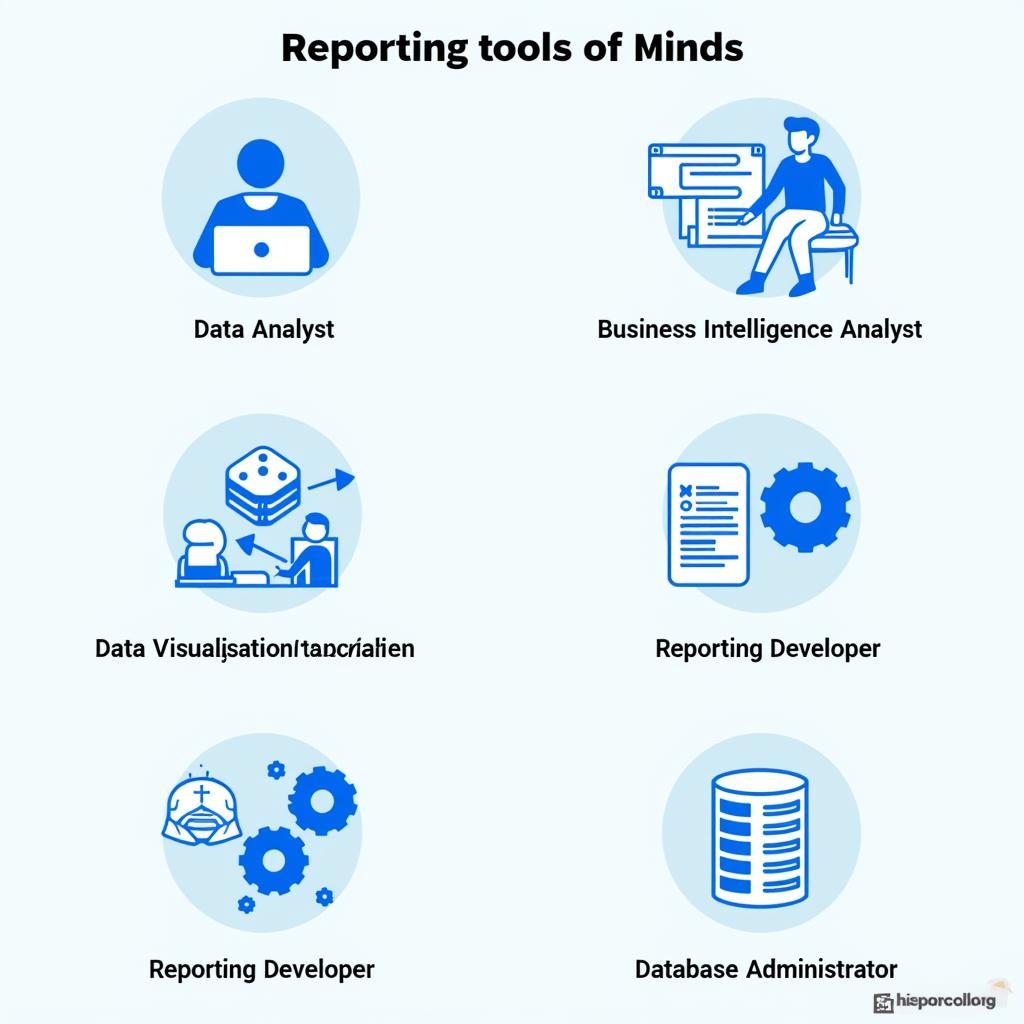A Career In Reporting Tools offers a dynamic path for those passionate about data, analysis, and providing valuable insights. From business intelligence to data visualization and performance management, reporting tools are essential for organizations across various sectors. This article delves into the exciting opportunities within this field, exploring the skills required, potential career paths, and the future of reporting tools.
What are Reporting Tools and Why are They Important?
Reporting tools transform raw data into meaningful information, enabling businesses to understand trends, identify areas for improvement, and make informed decisions. These tools encompass a wide range of software applications, including data visualization platforms, business intelligence (BI) software, and performance management systems. They play a crucial role in streamlining reporting processes, improving data accuracy, and facilitating data-driven decision-making.
Different Types of Reporting Tools
The reporting tools landscape is diverse, catering to various needs and levels of technical expertise. Some popular categories include:
- Data Visualization Tools: These tools create interactive charts, graphs, and dashboards, making complex data easy to understand.
- BI Reporting Tools: These tools focus on providing comprehensive business insights, enabling strategic planning and performance monitoring.
- Embedded Reporting Tools: Integrated directly within applications, these tools provide real-time reporting and data analysis within existing workflows.
Skills Needed for a Career in Reporting Tools
A successful career in reporting tools requires a blend of technical and soft skills. Technical skills include proficiency in data analysis, database management, and programming languages like SQL. Equally important are soft skills like communication, problem-solving, and critical thinking, which are essential for interpreting data and presenting findings effectively.
Technical Skills: The Foundation of Your Reporting Career
Technical expertise is crucial for working with reporting tools. Essential skills include:
- Data Analysis: Proficiency in statistical analysis, data mining, and data modeling.
- Database Management: Understanding of database structures, query languages (SQL), and data warehousing.
- Programming Languages: Knowledge of languages like Python or R for advanced data analysis and automation.
Soft Skills: Communicating Your Insights Effectively
Soft skills are essential for translating technical data into actionable business insights. These include:
- Communication: Ability to clearly and concisely explain complex data findings to both technical and non-technical audiences.
- Problem-Solving: Identifying data discrepancies, troubleshooting technical issues, and proposing data-driven solutions.
- Critical Thinking: Evaluating data quality, identifying biases, and drawing logical conclusions.
Career Paths in Reporting Tools: Where Can You Go?
 Diverse Job Roles in Reporting Tools
Diverse Job Roles in Reporting Tools
A career in reporting tools can lead to a variety of exciting roles. Some common career paths include:
- Data Analyst: Analyzing data, identifying trends, and creating reports to support business decisions.
- Business Intelligence Analyst: Developing and maintaining BI dashboards and reports to provide insights into business performance.
- Data Visualization Specialist: Creating interactive and visually appealing dashboards and reports to communicate complex data effectively.
- Reporting Developer: Designing, developing, and implementing reporting solutions using various reporting tools and technologies.
- Database Administrator: Managing and maintaining databases used for reporting and analysis.
DiagFixPro understands the importance of efficient reporting in the automotive industry. Our resources can help you navigate the landscape of used car sales tools.
The Future of Reporting Tools: Emerging Trends
The field of reporting tools is constantly evolving. Key trends shaping the future include:
- Artificial Intelligence (AI) and Machine Learning (ML): Automating data analysis, generating insights, and providing predictive capabilities.
- Cloud-Based Reporting: Increased accessibility, scalability, and cost-effectiveness.
- Real-Time Reporting and Analytics: Providing immediate insights for faster decision-making.
Conclusion: Embrace the Data-Driven Future
A career in reporting tools offers a rewarding path for those who thrive in a data-driven world. By developing the right combination of technical and soft skills, you can unlock a wide range of opportunities and contribute to the success of organizations across industries. As reporting tools continue to evolve, embracing new technologies and trends will be essential for staying ahead in this dynamic field. Choosing a career in reporting tools allows you to be at the forefront of innovation, turning raw data into actionable insights that drive business forward.
FAQs
- What is the typical salary for someone working with reporting tools? Salaries vary depending on the specific role, experience level, and location, but are generally competitive.
- What are some popular reporting tools used in the industry? Tableau, Power BI, Qlik Sense, and Crystal Reports are some widely used reporting tools.
- How can I get started in a career in reporting tools? Gaining proficiency in data analysis, database management, and visualization tools is a good starting point. Relevant certifications can also enhance your career prospects.
- What are the career advancement opportunities in this field? You can progress to senior analyst roles, management positions, or specialize in areas like BI or data visualization.
- Is a background in computer science required for a career in reporting tools? While helpful, a computer science background is not always mandatory. Strong analytical and problem-solving skills combined with relevant training can open doors to this field.
- How important is data visualization in reporting? Data visualization plays a crucial role in making data accessible and understandable, facilitating better communication and decision-making.
- What are the key challenges faced in a career with reporting tools? Keeping up with the rapidly evolving technology landscape and ensuring data quality and accuracy are some common challenges.
You might also be interested in service planning tools in aged care and fifa career mode online management tool. For those in education, the career cruising school ilp administration tool could be insightful. Businesses focused on customer service might find our article on top customer care center tools beneficial.
Need help with car diagnostics or have questions about reporting tools in the automotive industry? Contact us via WhatsApp: +1(641)206-8880, Email: [email protected] or visit us at 910 Cedar Lane, Chicago, IL 60605, USA. We have a 24/7 customer support team ready to assist you.

Leave a Reply